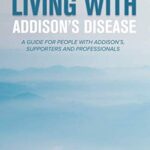Addison’s disease is a rare autoimmune disorder in which the adrenal glands do not produce enough of the hormones cortisol and aldosterone. These hormones are essential for regulating metabolism, blood pressure, and stress responses. The disease develops gradually and can become life-threatening if untreated, especially during times of physical stress or illness.


